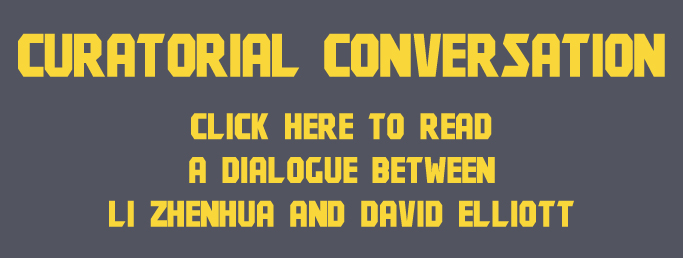Pandamonium Kunst Salon
29 May 2014
CURATORIAL STATEMENT
Since China Avant-garde, with its iconic German debut at Berlin’s Haus der Kulturen der Welt in 1993, Chinese contemporary art has shown a completely new face to the contemporary art world. After 1979, when the first avant-garde art groups showed their work after the Cultural Revolution, Chinese art has undergone a transformation from demanding artistic freedoms to a more complex and nuanced response to both its domestic and global context. This year marks the 35-year anniversary of the beginning of this transformation.
Zhang Peili started his first experiments with video art in 1988, moving from painting to an engagement with the specific aesthetics and politics of new media. Video art in China today not only contributes to the mainstream of new media art and aesthetics, but has also rooted itself deeply in practical research into technological development as well as into the experience of daily life.
PANDAMONIUM, the title of this exhibition, suggests two conflicting ideas: the soft, cuddly, diplomatic, almost clichéd, image of the Panda, one of the great symbols of China to the outside world, and the wild, fertile, noisy disorder of Pandemonium, the place of all demons in Milton’s ‘Paradise Lost’. The birth of this new word represents the chaotic energy of Chinese artists’ efforts and experiments in new media art over the past decade. Furthermore, it highlights the fact that Chinese contemporary art has not yet, other than through the art market, engaged globally during this time. This lack has been veiled by the speed of Chinese social and economic development and further masked by the impact of politics and the media.
PANDAMONIUM focuses on the work of Shanghai artists who create openly, distant from the country’s political center in Beijing. The group of artists shown here are all engaged in experiments with new media, introducing into Chinese art new creative ideas and aesthetic approaches. This exhibition addresses the first three generations of media artists in China. Starting with pioneers like Zhang Peili and Hu Jieming, working since the 1980s to break new ground with the technologies of media art, to the successes of the next generation, such as internationally acclaimed artist Yang Fudong, and moving on to their students, who are developing their own visual languages in response and in contrast to their pioneering teachers. Most of the works of this youngest generation of artists is premiered in Berlin for the first time. Berlin-based artists Thomas Eller and Ming Wong, both with strong links to China, present works responding to these themes.
Focusing on single-channel video, the work selected for this show presents minimal and subtle expressions that offer a view not only of some of the strongest work now being made in Shanghai but also of the scale of transformation that is now running through the whole of Chinese contemporary art. PANDAMONIUM is especially proud to premiere a new work by Qiu Anxiong, made for this exhibition.
* Special thanks for support from CAC | Chronus Art Center, WTI and CP, and also to the .CHB Collegium Hungaricum Berlin.



 Back to Homepage
Back to Homepage